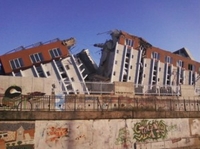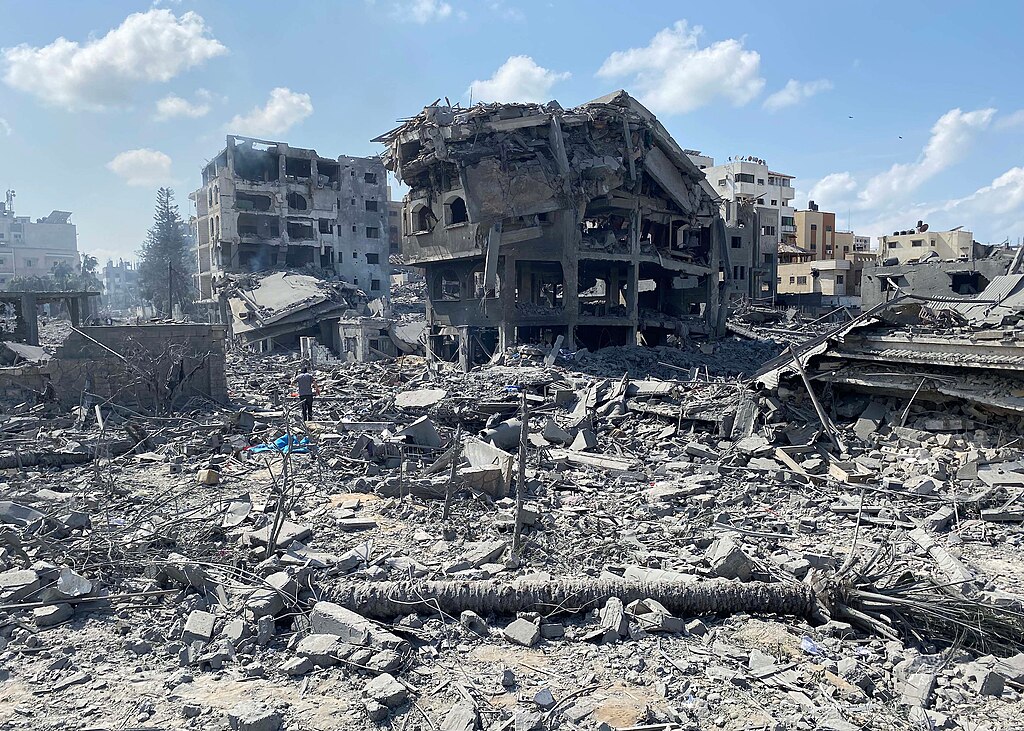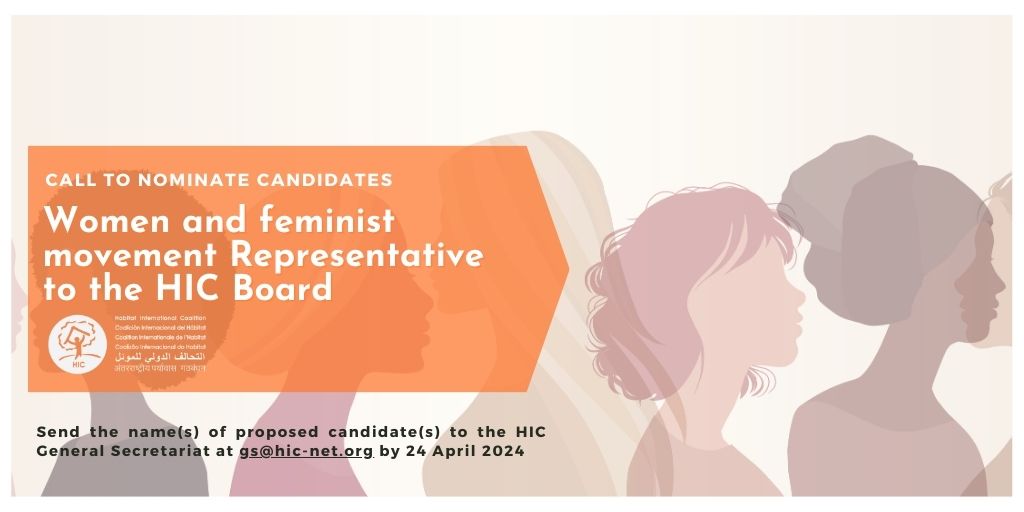
About 20
months ago, Chile was
shaken by its worst catastrophe in 50 years. For the
majority of those affected, reconstruction has been a very
slow process and is another unresolved problem that the
Sebastian Piñera government has.
AWID spoke to Natalia
Flores González, Executive Secretary at Observatorio
Género y Equidad (El Observatorio)(Gender and Equity Watch)
about how the disaster affected women s rights and their role
in the response and reconstruction processes.
The current Chilean
context is one of increasing discontent over the absence of
State policies for education, health, employment and social
security, which have resulted in demonstrations across the
country. While the origins were in sectoral demands they have
become a broad national movement that is challenging the
economic and social model that gave rise to the Chilean
miracle. Protests by mortgage debtors and families affected
by the 2010 earthquake, who are still living in tents, are one
of many of the actions taking place in the country which
include copper workers opposed to privatization of mineral
resources and high school and University students demanding
quality public education[i].
AWID: What was
the damage caused by last year s earthquake? Which areas and
persons were most affected?
Natalia Flores
González (NFG): In the early morning of Saturday, February 27,
2010, an earthquake measuring 8.8 on the Richter scale, off
the coast of the Bio-Bio
region, shook the country unleashing the worst catastrophe in
the last 50 years. The earthquake triggered a massive tidal
wave, which devastated several coastal towns in south-central
Chile
flooding fishermen s coves and many villages and damaging the
port at Talcahuano.
Millions of people were affected in seven of the 15 regions in
the country from Valparaíso in the north to Araucanía in the
south. Hundreds died or disappeared and more than 500,000
houses were severely damaged. There were more than 200
aftershocks, some of them measuring over 6.0 on the Richter
scale.
AWID: How were
people s rights, and specifically women s rights, affected
by the earthquake and responses to the disaster?
NFG: The human rights of
both women and men were violated by the emergency response
measures. The affected territories were militarized; if you
talk to the inhabitants of the Concepción or Maule regions,
they still remember the military patrolling with rifles on
their shoulders, seeking to restore public order. There
were illegal arrests and abuses committed by the authorities
as well as delays in delivering food and water. If we look
specifically at women, reproductive health care almost
disappeared; government authorities were not concerned about
overcrowding or resettling women who were victims of domestic
violence.
AWID: What
efforts have been made by the State and civil society for
reconstructing the affected areas following the 2010
earthquake?
NFG: The State-led
reconstruction process is still ongoing. More than a year and
a half since the earthquake, Chile still
does not have a Special Reconstruction Bill . Allocated
budgets have been insufficient and authorities appointed for
these tasks have not stayed in their posts beyond three or
four months. Moreover, the immediate emergency response was
handed over to big private companies selling construction
materials, but they have not been able to meet the demands.
This entire process was
run on the basis of guidelines provided directly from the
National Government without space for local debate in the
affected regions, without any participation from citizens and
without taking into account local needs such as recovering the
cities structural and cultural heritage.
Unfortunately, despite
the fact that the earthquake and tidal wave gave rise to
community organizing in the affected locations in the form of
local councils, citizens plans for social and territorial
reconstruction, regional assemblies etc, none of these were
taken into account by President Piñera s government which
failed to use the opportunity to engage in dialogue with them.
AWID: How
successful have the efforts been in addressing women s
specific needs?
NFG: A gender perspective
has been completely absent from both the emergency response
policies as well as the inadequate measures taken for
reconstruction. The needs of Chilean women were overlooked in
the aftermath of the disaster as well as in organizing the
reconstruction. President Piñera s government actions, and
even those promoted by the SERNAM
(National Service for Women) have not responded to those
specific needs at all.
Under the call Mujer, levantemos Chile ( Woman, Let s
Get Chile Back On Its Feet ), the government offered a series
of measures, mostly integrated into its overall action plan.
A series of talks at community centres were organized with
psychologist Pilar Sordo and 100 copies of a video chat with
Sordo on emotional support were distributed.
But no information has
been provided on the resources and subsidies delivered to
women, or on the impact of the actions taken for women. And
the findings of an evaluation conducted by organizational
members of the Maule Women s Network are worrying: no sanitary
pads were distributed, there was no access to contraceptives –
which resulted in unwanted pregnancies, and no medical support
was provided to the population for handling their distress,
fear and anxiety. The inadequacy of public care networks was
especially visible in the area of health.
AWID: What role
have women played in this process?
NFG: Chilean women were the
first to respond to the emergency and the reconstruction .
This has been illustrated by several testimonies in the media.
They moved quickly to organize themselves in the very first
hours and days of the disaster, resulting in dozens of leaders
emerging in different locations. Several women s NGOs
immediately developed solidarity campaigns, collecting basic
items for women and supporting women s organizations and
leaders in the areas affected by the earthquake. This is proof
of the social capital available in the villages.
In March 2010, El
Observatorio created a blog called Gender and Reconstruction to share news
exclusively related to this process and create a means for
communication among those affected by the tragedy and those
looking for ways to help. Also, through its electronic
Bulletin, it gave voice to women leaders and experts to
express their views, needs and analysis. The same was done
through its weekly program in Radio Tierra, Objetivo Zoom
(Zoom Goal) in which leaders and experts were interviewed and
assessed the situation of women after the earthquake and in
the reconstruction process.
In June 2010 El
Observatorio, together with Fundación Dialoga, SUR Corporación
de Estudios Sociales y Educación (Social Studies and Education
Corporation) and with the support of Universidad Academia de
Humanismo Cristiano (Christian Humanism Academy University),
organized a seminar on Women and Earthquakes: Building
cities/citizenships. It brought together more than 100
leaders of women s organizations in the areas affected by the
earthquake, who discussed their situation and took part in
different workshops, with the support of Analucy Bengoechea, a
Honduran expert on community resilience (post Hurricane
Mitch).
Currently El
Observatorio are developing an initiative with organizations
from five of the regions affected by the earthquake called
Integrating Gender in Reconstruction: Women leaders and new
ICTs for exercising citizenship .
As a member of
Red Mujer y Hábitat de América Latina (Latin American Women
and Habitat Network), SUR Corporación
worked with women s organizations in the Maule
and Bio- Bio regions within the framework of UNIFEM s Regional
Program Cities Free from Violence against Women, Safe Sities
for All. Women leaders skills and roles were strengthened
and they are currently participating in citizens initiatives
raising their own gender claims.
Various organisations[ii] have developed actions aimed at
strengthening women s citizenship and responding to their
specific needs. These actions include individual resilience
and gender sensitive emergency response workshops, collecting
supplies and gathering support for rebuilding the offices of
women s organisations.
Fondo Alquimia,
together with Casa de los Colores and Centro Soial Quidell and
with the support of Urgent Action Fund-Latin America, led a
women s human rights watchdog project in the Maule and Bio-Bio region, to ensure that women s
sexual and reproductive rights were being respected and
defended, and also to expose violations in the post-disaster
context.
AWID: What
problems are still pending after the 2010 earthquake?
NFG: There are two main
pending problems. Firstly, reconstruction is still lagging
far behind. Buildings that are uninhabitable have not yet
been demolished and the previous residents have not been
resettled into quality houses. The hut camps have already
faced two winters and the housing subsidies have not yet been
allocated.
The second serious
problem is the lack of consultation and citizen participation
in the reconstruction process. Local organizations have not
been heard or taken into account by local, regional or
national authorities, and they have been strongly repressed
whenever there have been demonstrations.
AWID: Are you aware of work being done in the area of
disaster management, from a women s rights perspective?
NFG: Natural disaster
prevention models with a gender perspective have not been
produced by the government before, during or after the
earthquake, and if we look at the political and ideological
guidelines of President Piñera s government we see that gender
policies have been reduced and replaced by perspectives
focused on women s traditional roles in the family.
It will be important
for women s organizations to reflect on their experiences in
responding to the earthquake and tidal wave emergencies and to
systematize and consolidate the lessons learned from the
disaster.


